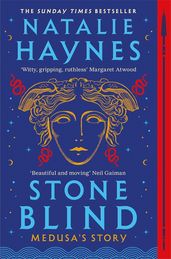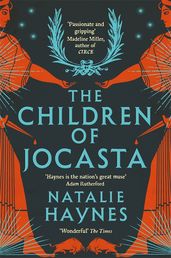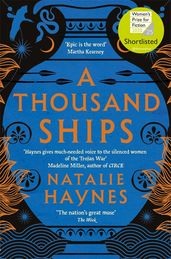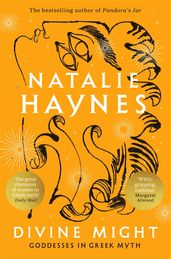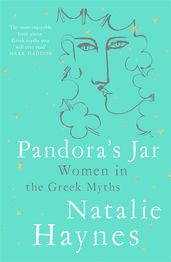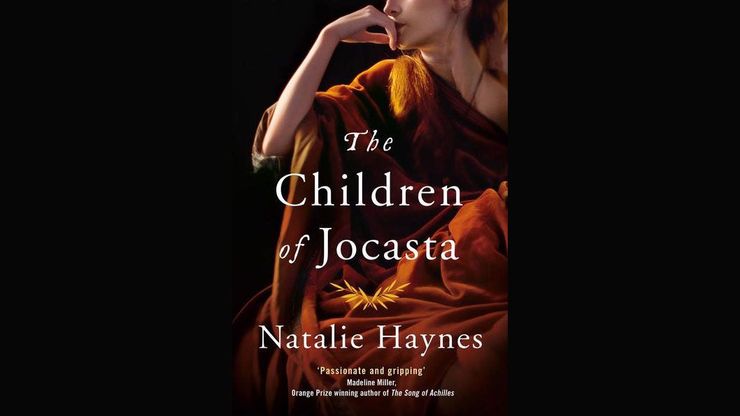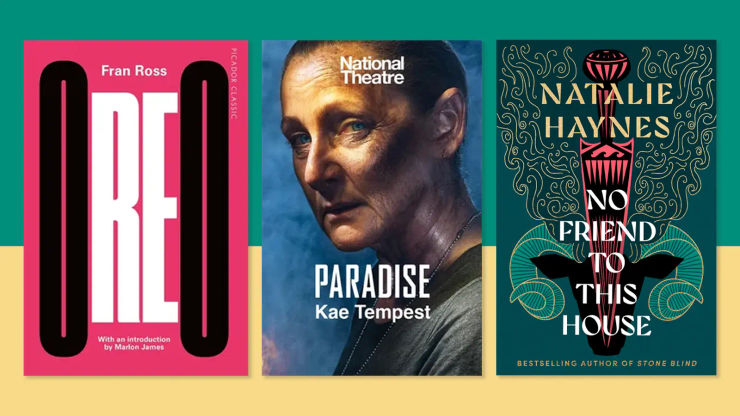A guide to Natalie Haynes' books
Natalie Haynes is a classicist, stand-up comedian and author of Stone Blind, Pandora's Jar and new novel No Friend to this House, amongst others. Here's our guide to her books.

Natalie Haynes is a classicist, creator and star of BBC Radio 4 show Stand Up for the Classics, and the author of both fiction and non-fiction based around Greek mythology. Read on for our guide to Natalie Haynes' books.
Natalie Haynes' fiction books
No Friend to this House
by Natalie Haynes
In her latest novel, Natalie Haynes turns to one of the most compelling and tragic figures of Greek myth: Medea. Beyond the well-sung details of Jason's quest with the Argonauts, a different story unfolds. Medea, a powerful priestess and witch, holds the key to Jason's survival, but saving his life means betraying her family and home. As her love for Jason grows, it becomes steeped in vengeance, a force that will endanger everyone they hold dear. In this breathtaking retelling, Haynes opens a forgotten chapter of myth, offering a powerful, fresh perspective on a classic tragedy.
Stone Blind
by Natalie Haynes
What if Medusa wasn’t just a monster waiting to be slain, but had a life, conversations, relationships? More than just a bit part in someone else’s origin story? The sole mortal in a family of gods, Medusa is changed forever when Poseidon attacks her in the temple of Athene and the goddess takes her revenge where she can: on his victim. Cursed with writhing snakes for hair and a gaze that turns any living creature to stone, Medusa retreats to the shadows to protect her sisters. And then Perseus embarks upon a quest to fetch the head of a Gorgon . . . With her acerbic wit and trademark feminism, Natalie Haynes makes Medusa as much a part of the legend of Perseus as Perseus himself. And by hearing her full story, we can properly appreciate the truth of it.
The Children of Jocasta
by Natalie Haynes
Jocasta is just fifteen when she is told that she must marry the King of Thebes, an old man she has never met. Her life has never been her own, and nor will it be, unless she outlives her strange, absent husband. Ismene is the same age when she is attacked in the palace she calls home. Since the day of her parents' tragic deaths a decade earlier, she has always longed to feel safe with the family she still has. But with a single act of violence, all that is about to change. With the turn of these two events, a tragedy is set in motion. But not as you know it. These are the stories of Oedipus and Antigone as you've never heard them told before.
A Thousand Ships
by Natalie Haynes
In the middle of the night, a woman wakes to find her beloved city engulfed in flames. Ten seemingly endless years of conflict between the Greeks and the Trojans are over. Troy has fallen. From the Trojan women whose fates now lie in the hands of the Greeks, to the Amazon princess who fought Achilles on their behalf, to Penelope awaiting the return of Odysseus, to the three goddesses whose feud started it all, these are the stories of the women embroiled in the legendary war.
Natalie Haynes' non-fiction books
Divine Might
by Natalie Haynes
Greek goddesses are as mighty, revered and destructive as their male counterparts. Isn’t it time this was properly appreciated? Meet Athene, who sprang fully formed from her father’s head: goddess of war and wisdom, guardian of Athens. Run with Artemis, goddess of hunting and protector of young girls (apart from those she decides she wants as a sacrifice). Reappraise Aphrodite, goddess of sex and desire – there is no deity more determined and able to make you miserable if you annoy her. And bow down to Hera, Zeus’s long-suffering wife, whose jealousy of his dalliances with mortals, nymphs and goddesses lead her to wreak elaborate, vicious revenge on those who have wronged her.
Pandora's Jar
by Natalie Haynes
Pandora – the first woman, who according to legend unloosed chaos upon the world – was not a villain. Originally she didn't even have a box. Modern tellers of Greek myth have usually been men, and have routinely shown little interest in telling women’s stories – and when they do, those women are often painted as monstrous, vengeful or just plain evil. Taking Pandora as a starting point, Natalie Haynes revisits the women of the Greek myths and puts them on equal footing with the men.

